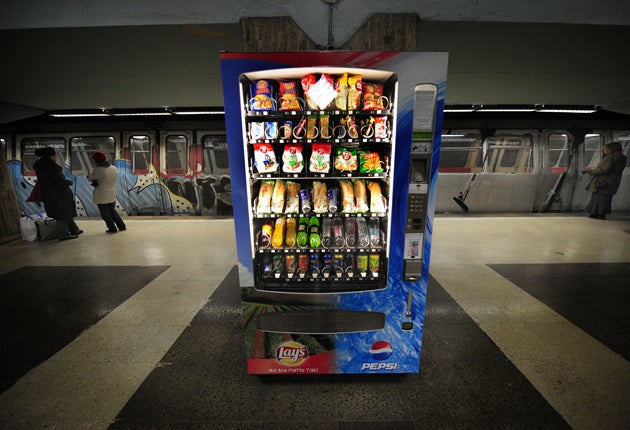How to solve the junk food problem: tax
Romania becomes the first country to fight the fat with fiscal policy

As a standard-bearer for healthy eating, Romania is not the first country that springs to mind. The eastern European nation's cuisine, rich in sour cream, butter and lard, is custom-made to clog arteries and stop hearts.
Yet the Romanian government is seeking to become the first in the world to impose a tax on junk food. The proposed levy on "unhealthy" products high in fat, sugar and salt is aimed at improving the poor quality of its citizens' diets – but will also boost the national exchequer by an estimated £860m.
The popularity of American-style fast food has boomed in the Balkan country since the fall of Communism in 1989. After the severe shortages of the Communist era, many Romanians see going to burger bars as a symbol of their freedom. But obesity rates are soaring and the health ministry says half the country's 22 million citizens are overweight.
The Romanian experiment is being watched closely by other countries desperate for measures to halt the global explosion in obesity. The European Public Health Alliance wrote to the Romanian Prime Minister Emil Boc to back the planned new tax after it was announced by the Health minister Attila Cseke in January, and said it could provide a model for other EU states to emulate in years to come.
But the plan, due to be implemented last month, appears to have run into difficulties. The government discovered that many products sold by street vendors that describe themselves as fast-food stalls weren't junk food at all.
On the streets of Bucharest, the most popular cheap, sustaining snack is the "shaorma" or kebab, which is made with fresh meat and other ingredients and ought not, according to its defenders, to be regarded as unhealthy just because it can be served quickly.
One stall owner said: "All the food we serve is fresh. We're a fast-food place, but we sell fresh Romanian products. I don't see how we could be putting the consumer's health at risk." The only processed product he used was mayonnaise, he said.
Kebabs and pizzas have now been exempted from the proposed new tax, according to reports, as legislators struggle to identify upwards of 40,000 products that will carry it. The scale of the challenge has only slowly dawned on the government and accounts for the delay.
The Romanian tax is unique because it is planned that it be the most far-reaching in the world. Norway has a tax on sugar and chocolate, and a tax on junk food and sweetened soft drinks was proposed the US Institute of Medicine last year. France announced plans to raise VAT on foods high in sugar and salt in 2008 but then abandoned them.
The World Health Organisation warned the tax would disproportionately affect the poor in a country where the average worker earns €350 a month and Romanians spend almost half their income on food. Others see it as a "stealth tax" to bolster the government at a time when it is facing a public-sector pay freeze and 100,000 job cuts announced in January. "The fact that you can go out on the street and see a line in front of a restaurant gives the impression that you can get more money out of them," said Tiberiu Fueriu, editor of Food and Bar Magazine.
Recipe for obesity? Romanian cuisine
*Lard features strongly in Romanian cooking: fried as bacon bits, slathered on bread or as the fat in cakes.
*Breakfast in rural areas is traditionally a shot of plum brandy and a hunk of bread topped with a lump of lard.
*Typical Romanian dishes include mamaliga, a version of polenta made with onions cooked in lots of lard and topped with softly cooked eggs; alivenci, cheese and sour cream soufflé; and ghiveciu, the national stew, made with vegetables, veal and raisins.
Join our commenting forum
Join thought-provoking conversations, follow other Independent readers and see their replies
Comments